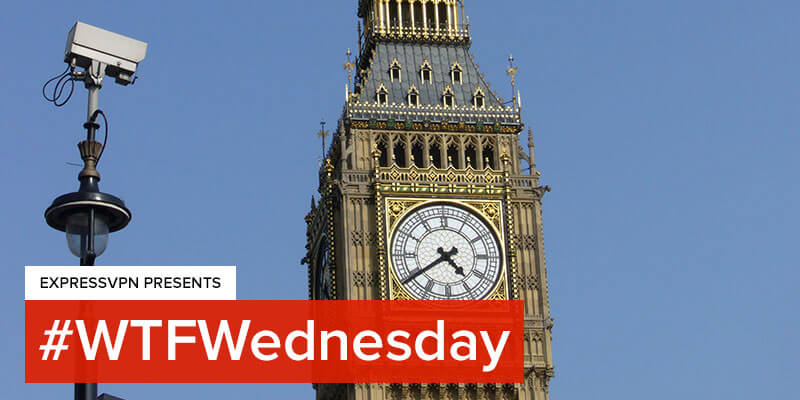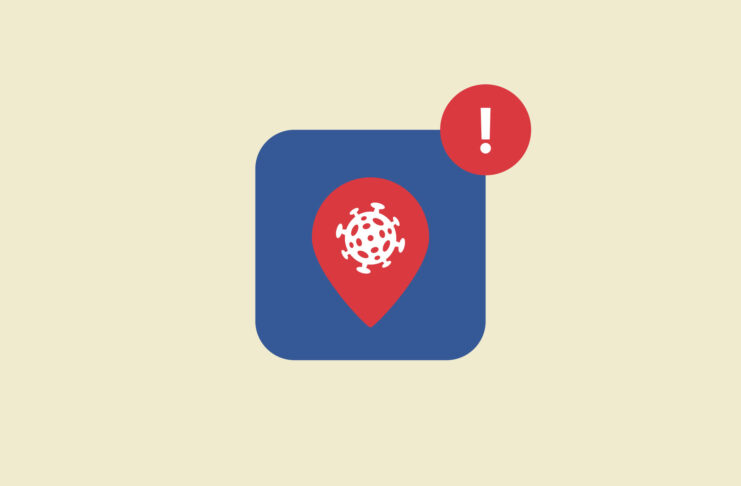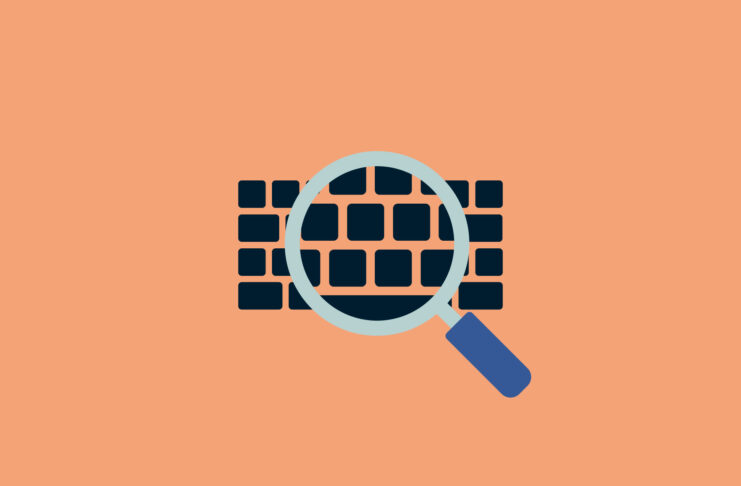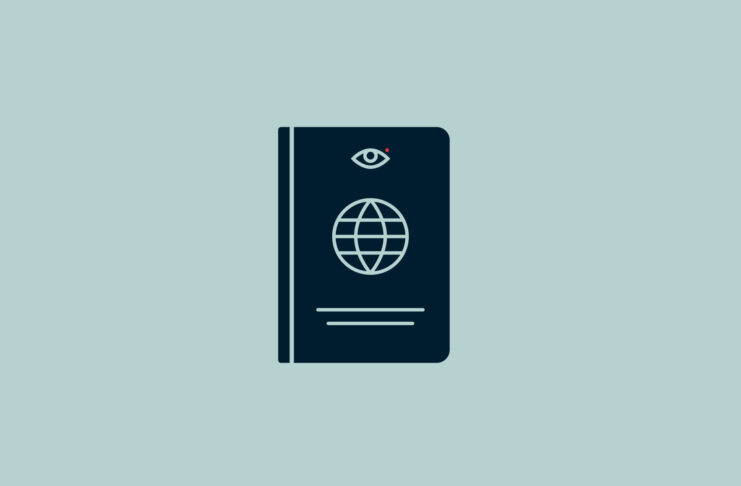If you’ve ever been to London, you’ll know it’s a great place to see the sights, climb some apple and pears, and overpay for mediocre food and drink. But what you might not know is that London is also the surveillance capital of the world – with an estimated 500,000 cameras filming the people of London 24/7.
Half a million cameras. That’s one camera for every 16 people in the Greater London area. And since that figure is from 2008, there are probably a lot, lot more now.
Londoners can’t even take a walk down the street without being filmed multiple times. In fact, 70 different cameras film the average Brit every day.
So if you don’t like being spied upon, London probably isn’t your dream destination. But why should Londoners just accept all these privacy invasions?
What if you were to go there and fight back? You might find that London surveillance cameras have more privacy rights than you do.
Camera-on-camera crime
Take the case of London artist James Bridle, for example.
James valued his privacy, so he decided to peacefully protest against London’s camera network. He did it by simply photographing every camera he saw on a walk around the city’s perimeter. And his strange essay “All Cameras Are Police Cameras” tells the whole story.
Just for taking photos of the CCTV cameras that were already filming him, James was first put under citizen’s arrest and then nicked by the coppers.
Walking down Park Lane, I was accosted by a man in a suit who demanded to know what I was doing. He took out his mobile phone, pointed it at my face, told me he was going to ‘circulate my description.’ Shortly afterwards, a colleague of his physically restrained me and called the police.
A little police tip there for any tourists to London. Don’t take any photos, or you’ll be suspected of terrorism!
‘The public love CCTV’
Hold up a second though. Lots more Londoners must be standing up for their rights, just like James Bridle. London is a proud city of 8.3 million people, after all. They aren’t going to sit around idly while the state and corporations take away their rights, are they?
Uhm… Maybe they are. Because according to the UK’s Surveillance Commissioner Tony Porter, Londoners aren’t really aware of how dangerous all these cameras are.
In fact, according to Tony Porter, Brits love CCTV. They love it so much, they’re now expanding London’s camera network with body-worn video equipment.
When people say ‘the public love CCTV’, do they really know what it does and its capability? Do they know with advancing technology, and algorithms, it starts to predict behavior?
So there you have it.
In London, the world’s surveillance capital, people aren’t campaigning for fewer cameras. They’re strapping even more of them to their own bodies.
This is #WTFWednesday, where we uncover the world’s strangest and scariest attacks on your privacy. If someone you know needs to read why London surveillance is so messed up, share this story with them!
ExpressVPN’s #WTFWednesday brings you weird, shocking, and creepy stories about data privacy—pulled straight from the news. Think your privacy is yours? Think again. You will feel uncomfortable. You will be outraged. You will think, “WTF?!”
Like this post? Hate it? Read more horror stories about the invasion of your privacy in our #WTFWednesday archive. You know you can’t resist…




























Comments
Hi,
Yes, very interesting and informative post. This will surely help know the London. keep sharing
Best Regards,
Doris CCTV
What about this ?
Most users trust the anonymity and protection promised by VPNs implicitly, but a research presented on Tuesday at the Privacy Enhancing Technologies Symposium shows that few of the 14 popular VPN providers analyzed maintain the integrity of the information entrusted by the user.
The researchers go on to add that info leaks refer to “all, or a critical part of the user traffic in mildly adversarial environments.” In many cases, the services rely on outdated technology (Point-to-Point Tunneling Protocol with MS-CHAPv2) that can be brute-forced.
On the same note, VPN clients leak data in networks supporting both IPv4 and IPv6 (dual-stack), and the small IPv6 traffic leaked outside the VPN tunnel could reveal the entire browsing history.
VPN products vulnerable to IPv6 leakage or DNS hijacking
Testing for IPv6 leakage, the researchers discovered that only four providers were able to maintain protection. These include Mullvad, VyprVPN, PrivateInternetAccess and TorGuard.
However, all of these were found vulnerable to DNS hijacking attempts. Out of the batch of 14, only Astrill mitigated such a risk. Basically, none of the tested services was able to offer protection against both Ipv6 and DNS hijacking.
The list also comprises services from Hide My Ass, IPVanish, ExpressVPN, StrongVPN, PireVPN, AirVPN, Tunnelbear, proXPN and Hotspot Shield Elite. They were picked based on their search ranking and the features advertised.
“All VPN services surveyed rely on the correct configuration of the operating system’s routing table. Worryingly, no attempt is made to secure this operation, for instance through monitoring the routing table to ensure that their initial configuration is not changed,” the researchers note in their paper.
http://m.theregister.co.uk/2015/06/30/worlds_best_vpns_fall_flat_in_security_tests/
Hello Francois,
The paper is outdated in several points. ExpressVPN uses its own DNS service, and we block IPv6 DNS results. Meanwhile, we’re working on further enhancing security in cases where an attacker controls the local router and is trying to break the VPN. Consider subscribing to our blog newsletter to stay up to date on those developments.
If you use bittorrent, we suggest these steps to confirm that all your bittorrent traffic always goes through the VPN:
1. Check if your network supports IPv6
2. If it says “No IPv6 connectivity :-(“, that’s good and you’re secure
3. Otherwise, if your network supports IPv6, consider disabling it in your operating system:
Ok Jerome .
I don’t use Bittorrent 😉